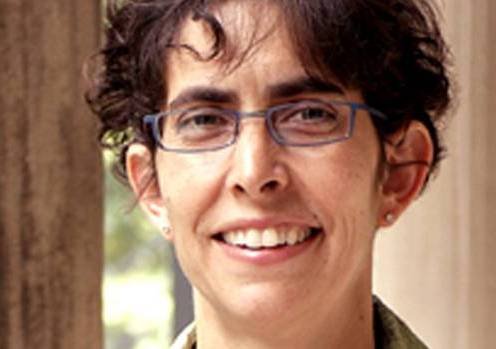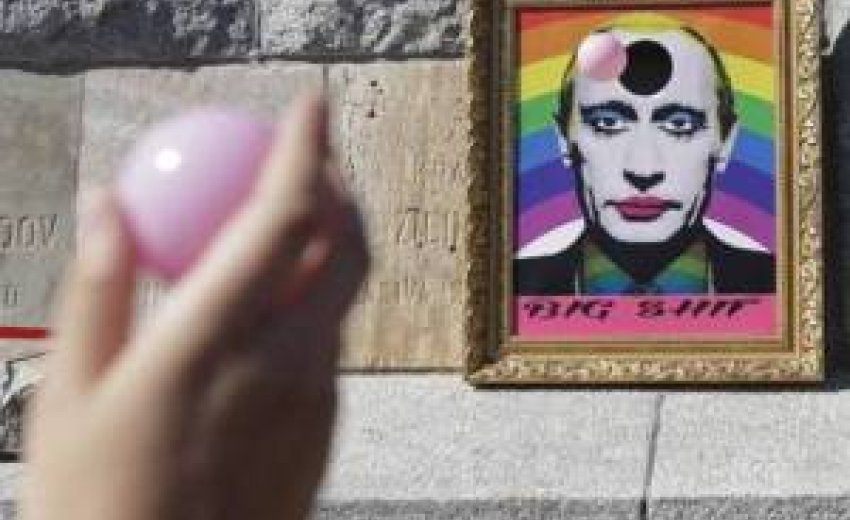| Dr. Sanjeet Singh Saluja, an emergency room physician at the McGill University Health Centre poses for a photograph in Montreal, Wednesday, August 21, 2013. (Graham Hughes/The Canadian Press) |
Wednesday, Aug. 21 2013: Quebec will lose public employees including doctors if the government insists on banning religious symbols in the workplace, says a physician from Montreal’s Sikh community.
A media report this week published leaked details of the controversial Parti Québécois proposal — saying it would prohibit people like doctors, teachers and public-daycare workers from donning turbans, kippas, hijabs and visible crucifixes.
The debate also created waves at the federal level Wednesday, with Liberal Leader Justin Trudeau becoming the first federal politician to weigh in strongly against the plan.
Dr. Sanjeet Singh Saluja, who wears a turban as part of his faith, said Wednesday that the PQ’s controversial “Charter of Quebec Values” would drive people from the Sikh, Jewish and Muslim communities away.
“The sad thing is I don’t know if I’d be able to stay here in Quebec,” said Saluja, an emergency-room doctor with the McGill University Health Centre.
“Even though I love my practice here in Quebec, my faith is something that’s important to me and I don’t feel comfortable giving up that part of my persona and I don’t think a lot of people would be willing to, either.”
Saluja, who was born and raised in Montreal, said this type of legislation could have a significant impact on hospital wait times in Montreal because many resident physicians in the city come from Middle Eastern countries and wear hijabs.
Several Montreal hospitals, he added, rely heavily on residents in many day-to-day functions.
“One of the reasons why we are able to sort of diminish these wait times is because we have these residents who come in and take on patient loads,” said Saluja, who believes young doctors would choose other provinces over Quebec if they didn’t feel welcome here.
Quebec has been bleeding residents to other provinces for decades, with net losses in migration that have diminished the province’s economic and political clout.
Its political weight consisted of 27 per cent of the House of Commons seats in the late 1970s, is 24 per cent today, and will drop to 23 per cent in the next federal election.
“This is not only one group that’s being isolated here,” Saluja said.
“This is an entire section of the Quebec population (so) it’s not going just to be the matter of one doctor, it’s going to be a matter of doctors many doctors leaving.”
A spokeswoman for McGill said training for the Middle Eastern residents is funded by their own governments. She said their Montreal stints usually last from four to six years and the univeristy admits approximately 35-40 trainees per year.
One federal political leader, the Liberals’ Trudeau, weighed in on the leaked PQ proposal. He found the idea troubling enough that he added the issue to the agenda of his previously planned meeting with Premier Pauline Marois.
“It worries me because our institutions, our state, must be neutral,” he told reporters during a visit to the Quebec City area.
“Individuals have the right to their religion and to their freedom of expression. It worries me.”
New Democrat Leader Tom Mulcair was more cautious when asked about the PQ proposal on Tuesday while in Montreal.
“I’m not going to respond to trial balloons,” said Mulcair, adding his party presented a substantive report in 2007 before Quebec’s Bouchard-Taylor commission on the accommodation of minorities.
“When there is something concrete on the table, I’ll have no hesitation to respond to it.”
The PQ minority government, lagging behind in popularity, hopes to win votes by championing a “secularism” plan that polls have suggested has considerable support in the province.
The government says it expects to present the charter this fall — although it’s not clear yet that the plan will get support from opposition parties, which hold a majority of seats in the legislature.
It’s also unclear yet whether the plan, even if it proves popular, would sway voters in the next election campaign.
Polls have suggested that while the idea has strong support it’s far less of a priority for Quebec voters than other issues, like the economy.
Saluja said he doesn’t believe such a policy would ever pass in Quebec because he has never known it to be a closed-minded place.
“I’ve never had a Quebecer come up to me and tell that I don’t belong here,” he said.
“Personally, I’m hurt. I’m very hurt.”
According to the leaked details in a tabloid newspaper, the proposal would let culturally specific hospitals — like Montreal’s Jewish General — seek an exemption.
The same newspaper has interviewed headscarf-wearing daycare workers who say they would quit their jobs if forced to choose between their religious beliefs and their work.
“I left my country and my family behind for a better life here. Now, I get the impression I’m being told to drop everything and go back home,” Zakia Maali told the Journal de Montreal.
“There’s nothing that will make me remove this. If I lose my job, it’ll be unemployment for me, and then welfare. Too bad.”
---------------------------------
Related Article:
Globe editorial
Quebec’s Putinesque idea to ban religious garb from public workplaces
Globe and Mail update, with clarification
http://m.theglobeandmail.com/commentary/editorials/quebecs-putinesque-idea-to-ban-religious-garb-from-public-workplaces/article13874079/?service=mobile
| A participant throws a ball towards a picture depicting Russian President Vladimir Putin with make-up during the Prague Pride Parade where several thousand people marched through Prague's city centre in support of gay rights on August 17, 2013. (DAVID W CERNY/REUTERS) |
Wednesday, Aug. 21 2013: Philosopher Charles Taylor hit the mark when he used the term “Putinesque” to describe a plan being considered by Quebec Premier Pauline Marois to ban individuals from wearing conspicuous religious symbols in the public-sector workplace. The ban would be an exercise of state power that is the farthest thing from the supposed goal of state neutrality on religion. Instead, it deems a set of deeply personal freedoms to be unworthy. That is much the same as what Russia’s President Vladimir Putin has done by banning “gay propaganda,” whatever that means.
What sort of democracy tells religious minorities – Jews with their yarmulkes, Sikhs with their turbans and kirpans, and Muslims with their headscarfs – that they and their rights are less valued than other people and their rights? (Christians would be permitted to wear crosses, as long as they aren’t too large.) A Putinesque one.
This society doesn’t really include you, the government is saying, unless you decide to give up on who you are and come along with us.
Can anyone make a case that a doctor or secretary with a head covering means the state isn’t neutral in some way? And if minorities are deprived of this basic religious freedom in the public workplace, as broadly defined, how would minorities be treated in the private sector? The message of being second-class citizens would not stop at the border of government workplaces.
It was Mr. Taylor who, as co-chair of a Quebec commission on reasonable accommodation, once urged the province to remove the crucifix from the National Assembly. The assembly immediately voted unanimously not to, because it knew how deeply people are attached to that particular religious symbol – sorry, historical artifact. Justifying that one on a vital legislative building, while denying individuals their right to wear a religious symbol, is absurd, hurtful and bullying; in short, Putinesque.
Note to readers: This editorial has been updated to reflect a change made in the print version that wasn’t made in the online version. The change reflects the fact that the Marois government is considering banning conspicuous religious symbols in the public sector workplace, not all workplaces.
---------------------------------
Distinguishing Quebec as closed-minded
Shauna Van Praagh | Contributor to The Globe and Mail
Source
 Thursday, Aug. 22 2013: This past weekend, Quebeckers – including elected leaders – participated with enthusiasm in Montreal’s Gay Pride parade. The message was that gays and lesbians are out, loud and proud.
Thursday, Aug. 22 2013: This past weekend, Quebeckers – including elected leaders – participated with enthusiasm in Montreal’s Gay Pride parade. The message was that gays and lesbians are out, loud and proud.
But only days later, the message is very different. In its proposed Charter of Quebec Values, the province’s government signals that public officials cannot wear religious symbols and dress, and that shared public institutions and spaces should keep out those who present themselves openly as religious.
Individuals of faith are told to retreat, to be silent, to act ashamed. They are asked to keep the version of themselves that shows who they are and to which faith they belong in the closet, never to be let out in public or in interaction with others. This is not pride in the diversity of human beings who live together in this province; instead, it is a clear directive to go into hiding, to make sure that we give no indication of any part of our identities that may be tied up with faith, belief and religious community.
A Charter is a symbol of who we in a society are, how we constitute ourselves, and what we stand for together. The Quebec Charter of Human Rights and Freedoms, dating from 1975, showed a society deeply committed to equality, free expression, free association and to the right not be subject to discrimination. When we talk about, and take pride in, the Quebec to which we belong, that Charter is a key part of the conversation. Quebec showed itself to be a leader in the world, an open, welcoming and diverse community.
But long before then, le vrai Québec was always a society of interacting communities, languages, creeds and cultures. That is our history, our legacy, our patrimoine. Les vrais Québécois have always been against the suppression of identity. ........more

